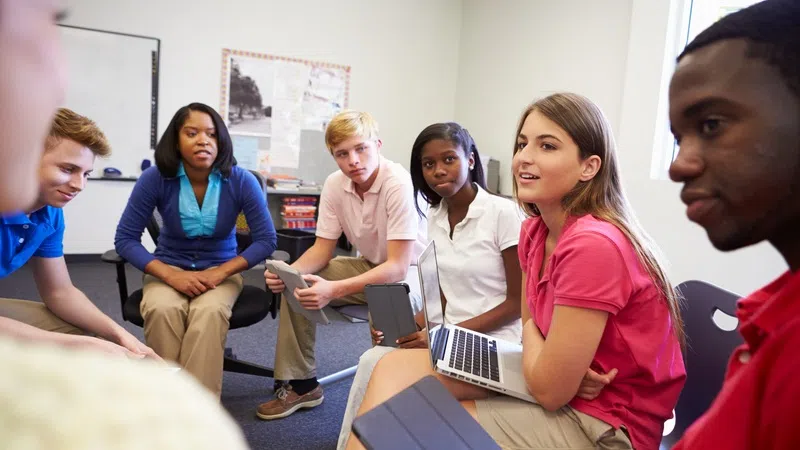Wild Rose School Division (WRSD) was featured in a recent Business View Magazine article, highlighting its contributions to educational excellence, community partnerships, and innovative learning strategies. The recognition comes from an interview between Superintendent Brad Volkman and Ian Gyan, a writer for the magazine, as part of a series focused on economic growth and best practices in North American towns and cities.
The interview focused on a number of priorities the division is pursuing.
Visionary Leadership in Education
Volkman emphasized the division’s ongoing efforts to meet the evolving needs of students in rural Alberta. He says WRSD continually advocates for government support to fund essential infrastructure projects that will enhance the learning environment for students, as well as renovations that prioritize collaborative teaching spaces.
Volkman also spoke of integrating technology into the classroom. With a combination of flexible delivery methods and outreach programs, he says WRSD ensures that even students in remote areas have access to a full curriculum. As he explains, “We’ve developed a way to allow all kids to connect and communicate with each other,” helping bridge gaps caused by geographic distance.
A Community-Driven Approach to Education
Volkman also lauded WRSD’s strong ties to local communities, businesses, and parents. These relationships help fund projects like revamping a decades-old playground in Caroline, to helping to create the “Field Of Dreams” in Breton. Volkman noted that local partnerships were key to the success of these initiatives, saying, “We’re grateful for the passionate involvement of local municipalities, businesses, and families—our schools are more than places for learning, they are community hubs.”
Additionally, with 11-12 per cent of students identifying as Indigenous, the division has prioritized building a robust Indigenous education program. Volkman detailed that program which seeks to integrate Indigenous perspectives into the curriculum and support Indigenous students in their academic journeys.
Preparing Students for the Future
Through a blend of vocational programs and hands-on experiences, WRSD provides students with real-world skills that set them up for future success. The division’s participation in Alberta’s Dual Credit Initiative allows high school students to earn college credits in fields ranging from healthcare to trades. The division offers Registered Apprenticeship Programs, Agricultural Green Certificate Programs, and Work Experience Programs, Volkman highlighted. “These programs give students the chance to learn new skills while earning credits toward their high school completion.”
Volkman also discussed the division’s career counseling services, which help students identify their strengths and align them with potential career paths, further enriching the educational experience. With the support of the community and local businesses, the division ensures that students gain valuable practical knowledge, which is then recognized as academic credit.
Leveraging Technology for Rural Education Innovation
Volkman says WRSD is also a pioneer in integrating technology into the classroom. Every school within the division is equipped with modern tech tools like large-screen televisions and Chromebooks, ensuring students and teachers can engage with learning in new, innovative ways. By moving to Google’s ChromeOS and Workspace for Education, the division has strengthened its cybersecurity measures, a move that has drawn interest from other schools eager to adopt similar strategies.
With online courses available for a range of subjects— such as forensic science and core subjects like Math and English— students in remote areas can still pursue a broad education.
Looking Ahead: Continued Growth and Innovation
Looking to the future, Volkman said the division is focused on improving its infrastructure and expanding its educational offerings. One initiative is the proposed K-4 elementary school in Rocky Mountain House, which would combine two aging facilities into a modern, state-of-the-art learning campus. Additionally, Volkman discussed the division’s growing commitment to mental health and well-being through the development of Collaborative Response, an approach that enables teachers to work together in providing the necessary support for students.
–
READ MORE
–
The division is also planning further investment in Indigenous education, with a focus on fostering cultural understanding and supporting the goals of truth and reconciliation.
You can read the entire article here.
















Comments